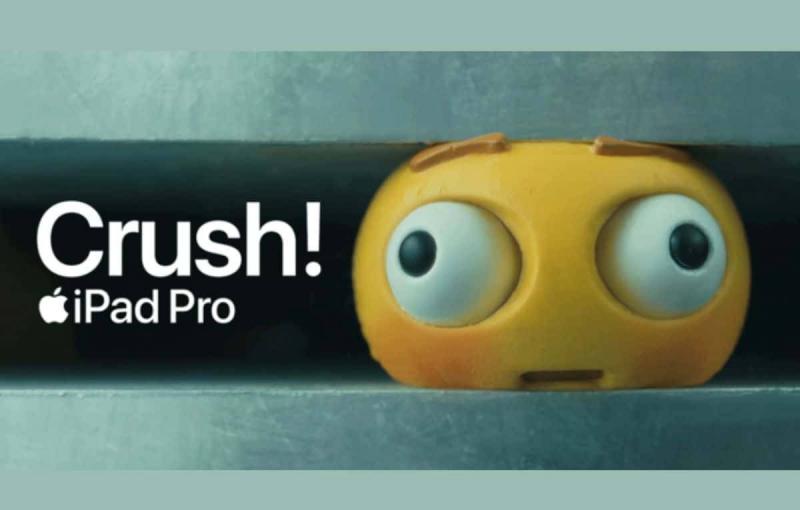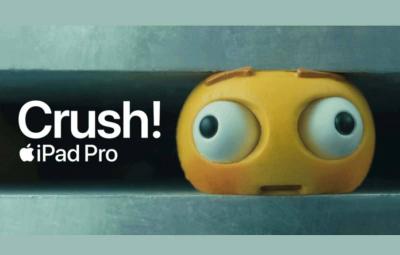After a promotional video announcing the new iPad sparked widespread criticism from actors, writers, and directors in Hollywood and beyond, Apple issued an apology two days later. Tor Myhren, Apple's vice president of marketing communications, announced that the renowned company had made a mistake. In a statement sent to "Ad Age," he said, "Creativity is at the core of Apple and in its DNA, and it is extremely important for the company to design products that empower creators around the world to realize what’s in their imagination." He added that the intent was to "always celebrate the countless ways users express themselves and bring their ideas to life through iPad, but we missed the mark with this video, and we apologize." Myhren also mentioned that the company does not plan to air the advertisement on television.
The uproar began after Apple CEO Tim Cook shared the advertisement for the new iPads on his X account last Tuesday, depicting a massive machine grinding musical instruments, vinyl records, and other vibrant, artistic items, making way for the presentation of the new and very thin Apple iPad.
Cook’s tweet included: "Meet the new iPad Pro: the thinnest product we’ve ever created, the most advanced display we’ve ever produced, with the incredible power of the M4 chip. Just imagine all the things it’ll be used to create."
This sparked outrage among many well-known artists who expressed their discontent with the video, which they felt glorified artificial intelligence at the expense of humanity. The video portrayed forms of human creativity being crushed, only to be replaced by the new Apple tablet.
British actor Hugh Grant commented on X criticizing the advertisement, asserting that it "expresses the destruction of the human experience thanks to Silicon Valley." Meanwhile, "Men in Black" screenwriter Ed Solomon mocked the video in a tweet, writing, "Who needs human life and everything that makes it worth living? Immerse yourself in this digital simulation and give us your soul... Sincerely, Apple."
However, Cook did not delete his original tweet or publicly address the company's apology, and the controversial video remains displayed on his X account. It’s worth noting that Apple briefly mentioned artificial intelligence last Tuesday but did not refer specifically to generative AI. Nonetheless, all artists are concerned that their work may be affected by this technology, which allows for the creation of all kinds of content (including text, images, videos, music, and more) based on simple prompts in everyday language.
Hollywood actors and screenwriters had previously conducted a months-long strike, especially demanding protection from generative AI. Additionally, authors and artists have filed complaints against major companies in the sector, including OpenAI ("ChatGPT"), accusing them of stealing their work to train their generative AI models.




